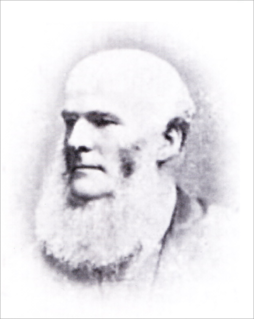A Quote by Edward Gibbon
Let us read with method, and propose to ourselves an end to which our studies may point. The use of reading is to aid us in thinking.
Related Quotes
A mood of constructive criticism being upon me, I propose forthwith that the method of choosing legislators now prevailing in the United States be abandoned and that the method used in choosing juries be substituted. That is to say, I propose that the men who make our laws be chosen by chance and against will of all the rest of us, as now.
There exists a law, not written down anywhere but inborn in our hearts; a law which comes to us not by training or custom or reading but by derivation and absorption and adoption from nature itself; a law which has come to us not from theory but from practice, not by instruction but by natural intuition. I refer to the law which lays it down that, if our lives are endangered by plots or violence or armed robbers or enemies, any and every method of protecting ourselves is morally right.
If the book we are reading does not wake us, as with a fist hammering on our skull, why then do we read? So that it shall make us happy? Good God, we should also be happy if we had no books, and such books as make us happy we could, if need be, write ourselves. But what we must have are those books which come upon us like ill fortune, and distress us deeply, like the death of one we love better than ourselves; like suicide. A book must be an ice-axe to break the sea frozen inside us.
It is a tragedy of the first magnitude that millions of people have ceased to use their hands as hands. Nature has bestowed upon us this great gift which is our hands. If the craze for machinery method continues, it is highly likely that a time will come when we shall be so incapacitated and weak that we shall begin to curse ourselves for having forgotten the use of the living machines given to us by God.
May we all be in such a condition of soul, such an attitude of heart as will fit us for any little work in which our gracious Lord may be pleased to use us- not seeking a place for ourselves, but lovingly serving all. The Lord, in His great mercy, grant that thus it may be, with all His beloved people!
Although our moral conscience is a part of our consciousness, we do not feel ourselves on an equality with it. In this voice which makes itself heard only to give us orders and establish prohibitions, we cannot recognize our own voices; the very tone in which it speaks to us warns us that it expresses something within us that is not of ourselves.
Women in America read 'lifestyle' pages which are really glorifications of shopping. They teach us we must veil ourselves in make-up to be loved. And we willingly take the veil, thinking ourselves freed by it. Make-up is no more optional for us than the veil is for Arab women: it is our Western version of the chador.
Demons frighten us because we set ourselves up to be frightened. We are overly attached to our reputations and possessions. When we love and desire what we should be rejecting, we are in conflict with our true selves. That's when the negative energies catch us and use our weapons against us. Instead of taking up what we have to defend ourselves, we put our swords in the hands of our enemies and make them attack us.
The end comes when we no longer talk with ourselves. It is the end of genuine thinking and the beginning of the final loneliness. The remarkable thing is that the cessation of the inner dialogue marks also the end of our concern with the world around us. It is as if we noted the world and think about it only when we have to report it to ourselves.
Any man will go considerably out of his way to pick up a silver dollar; but here are golden words, which the wisest men of antiquity have uttered, and whose worth the wise of every succeeding age have assured us of; and yet we learn to read only as far as Easy Reading, the primers and classbooks, and when we leave school, the Little Reading, and story books, which are for boys and beginners; and our reading, our conversation and thinking, are all on a very low level, worthy only of pygmies and manikins.
When we are in love, our love is too big a thing for us to be able altogether to contain it within ourselves. It radiates towards the loved one, finds there a surface which arrests it, forcing it to return to its starting-point, and it is this repercussion of our own feeling which we call the other's feelings and which charms us more then than on its outward journey because we do not recognise it as having originated in ourselves.
It may well be feared, that there is not enough Biblereading among us. It is not sufficient to have the Book. We must actually read it, and pray over it ourselves. It will do us no good, if it only lies still in our houses. We must be actually familiar with its contents, and have its texts stored in our memories and minds. Knowledge of the Bible never comes by intuition. It can only be obtained by diligent, regular, daily, attentive, wakeful reading.
The Louvre is the book in which we learn to read. We must not, however, be satisfied with retaining the beautiful formulas of our illustrious predecessors. Let us go forth to study beautiful nature, let us try to free our mids from them, let us strive to express ourselves according to our personal temperaments. Time and reflection, moreover, little by little modify our vision, and at last comprehension comes to us.







































